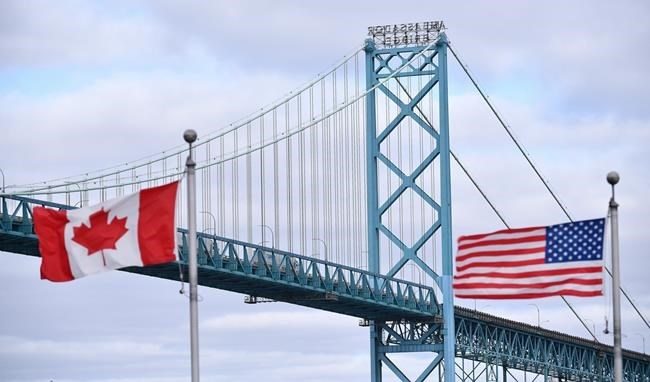OTTAWA — A lawyer for prospective refugee claimants says a federal judge was correct in finding an agreement between Ottawa and Washington results in people being imprisoned by U.S. authorities.
Lawyer Michael Bossin argued in an appeal hearing Wednesday there was enough evidence for Federal Court Justice Ann Marie McDonald to conclude the Safe Third Country Agreement leads to the detention of people turned away by Canada.
"The grounds upon which people can be detained in the U.S. are much broader than in Canada," Bossin told a three-judge panel of the Federal Court of Appeal.
Under the refugee agreement, which took effect in 2004, Canada and the U.S. recognize each other as safe places to seek protection.
It means Canada can turn back a potential refugee who arrives at a land port of entry along the Canada-U.S. border on the basis the person must pursue their claim in the U.S., the country where they first arrived.
Canadian refugee advocates have steadfastly fought the asylum agreement, arguing the U.S. is not always a safe country for people fleeing persecution.
Several people seeking protection took the case to court along with the Canadian Council for Refugees, the Canadian Council of Churches and Amnesty International, which participated in the proceedings as public-interest parties.Â
In each case the applicants, who are citizens of El Salvador, Ethiopia and Syria, arrived at Canadian land entry ports from the U.S. and sought refugee protection.Â
They argued in Federal Court that by returning refugee claimants to the U.S., Canada exposes them to risks in the form of detention and other rights violations.Â
In her decision last year, McDonald concluded the Safe Third Country Agreement results in ineligible claimants being imprisoned by U.S. authorities.Â
Detention and the consequences flowing from it are "inconsistent with the spirit and objective" of the refugee agreement and amount to a violation of the life, liberty and security rights guaranteed by Section 7 of the Charter of Rights and Freedoms.Â
"The evidence clearly demonstrates that those returned to the U.S. by Canadian officials are detained as a penalty."
After hearing two days of arguments on the federal government's challenge of McDonald's decision, the appeal court decided Wednesday to reserve its ruling until a later date.
Canada's lawyers say neither U.S. asylum law nor practice means automatic detention for those determined to be ineligible to claim refugee status in Canada under the bilateral agreement.
Rather, the government says, detention is discretionary and for those held there is a robust review scheme.
In her ruling, McDonald noted one of the would-be refugee claimants in the case, Ethiopian national Nedira Jemal Mustefa, was returned to the U.S. by Canadian officials and immediately taken into custody by American authorities. She was held for a month at a correctional facility, including a week in solitary confinement pending results of a tuberculosis test.
Mustefa and others who provided the court with sworn evidence about their time in U.S. detention described the facilities as "abnormally cold."
During the appeal hearing Wednesday, Justice David Stratas said he was not belittling the detainees' experiences, but asked if it was "logically possible to take individual incidents and draw inferences about a systemic problem in the United States?"
Bossin said McDonald had more than just anecdotal evidence before her.
"She had evidence of people who were working with multiple returnees — experts on U.S. immigration law who were basing their statements on their own research and on what they knew was going on," Bossin said.
"That points to a systemic problem, where those experts say that the default is detention."
This report by The Canadian Press was first published Feb. 24, 2021.
Jim Bronskill, The Canadian Press




